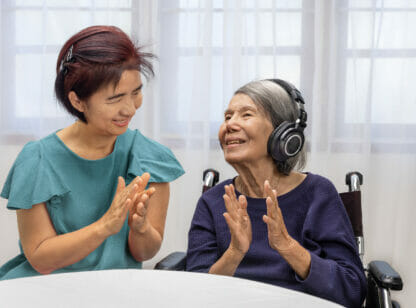The 2017 book The End of Alzheimer’s by Dale Bredesen, MD caused a sensation. For the first time, there was scientific documentation on a wide scale of the reversal of cognitive decline using lifestyle factors. Bredesen, a research professor of neurology at UCLA and founder of the Buck Institute for Research on Aging, first reported on a case of reversal of cognitive decline in 2014. By 2016, he had a small group of successful patients, and by the time his first book was published, he had helped over 200 patients. Practitioners from all over the world started training in the Bredesen protocol.
The 2017 book highlighted three main causes of Alzheimer’s disease: 1) brain atrophy mainly caused by high blood sugar; 2) inflammation caused by a variety of inflammatory conditions and 3) toxins due to food and the environment. The treatment program centered on the Mediterranean diet, exercise, quality sleep and stress reduction.
The End of Alzheimer’s Program is the more detailed practice book many requested to better understand the problem and implement lifestyle changes. Bredesen admits he is a researcher and not a clinician. This book updates the research and provides a detailed program with the benefit of two women close to the author.
Julie Gregory has two ApoE4 genes and reversed her cognitive decline using the Bredesen protocol. Julie now spends her time helping others as chief health liaison for Apollo Health, an online health practice. Her description of “A Day in the Life” of living the protocol is outstanding.1 The second woman is Aida Lasheen Bredesen, MD, Dale Bredesen’s wife. She is a trained family physician and integrative health practitioner. Together, these two women present the treatment protocol in great detail.
The recommended diet is called KetoFLEX 12/3 and is ketogenic with intermittent fasting. The Brain Food Pyramid has overnight fasting at the base with non-starchy vegetables and healthy fats next, followed by prebiotics, resistant starch and probiotics. This program is a refinement of the Mediterranean diet; exercise, restorative sleep and stress reduction are also emphasized as part of the treatment protocol.
Updating the research from the first book, Bredesen has expanded the causes of Alzheimer’s disease with a new classification:
Type 1 Alzheimer’s is inflammatory or hot. Chronic inflammation is the hallmark of Type 1 and results from the chronic inflammation of insulin resistance with the ingestion of inflammatory foods, chronic stress and auto-immune conditions.
Type 2 Alzheimer’s is atrophic or cold. This type results from inadequate nutrients, hormones or trophic factors needed to support 500 trillion synapses in the brain.
Type 1.5 Alzheimer’s is glycotoxic or sweet. Chronic high blood sugar, such as with type 2 diabetes, causes both brain atrophy and brain inflammation.
Type 3 Alzheimer’s is toxic or vile. The results from exposure to toxins such as mercury, toluene or mycotoxins from chronic mold exposure. Chronic infections such as Lyme and Bartonella fall into this category.
Type 4 Alzheimer’s is vascular or pale and results from decreased circulation to the brain due to atherosclerosis. It has been known as vascular dementia.
Type 5 Alzheimer’s is traumatic or dazed. This type results from repeated concussions or other head injuries.
The End of Alzheimer’s Program provides the detailed treatment recommendations that were lacking in the first book and serves as a manual for treating this increasingly common disease. However, the book is no substitute for training and becoming certified in the Bredesen protocol. On a final note, I was delighted to see Bredesen acknowledge the contribution of our local Jeralyn Brossfield, MD to this work.
Joseph Scherger, MD, MPH is founder of Restore Health in Indian Wells, a clinic dedicated to weight loss and reversing disease. For more information, visit www.restorehealth.me or call (760) 898.9663.
Reference:
1) https://www.apollohealthco.com/a-day-in-the-life/

















































Comments (0)